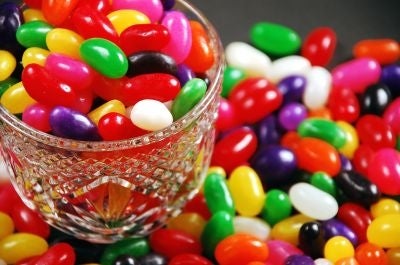Your support helps us to tell the story
From reproductive rights to climate change to Big Tech, The Independent is on the ground when the story is developing. Whether it's investigating the financials of Elon Musk's pro-Trump PAC or producing our latest documentary, 'The A Word', which shines a light on the American women fighting for reproductive rights, we know how important it is to parse out the facts from the messaging.
At such a critical moment in US history, we need reporters on the ground. Your donation allows us to keep sending journalists to speak to both sides of the story.
The Independent is trusted by Americans across the entire political spectrum. And unlike many other quality news outlets, we choose not to lock Americans out of our reporting and analysis with paywalls. We believe quality journalism should be available to everyone, paid for by those who can afford it.
Your support makes all the difference.In a study of children ages 3 to 5, involving two separate experiments, researchers found that, like their parents, youngsters have big cravings for salt, sugar, and fat, and already equate their preferences to fast foods and brand-name junk foods.
The reason? Researchers blame exposure, namely repeated exposure to junk foods at home and at schools. T. Bettina Cornwell, a professor of marketing in the University of Oregon Lundquist College of Business and study researcher, said that when parents repeatedly serve certain foods, their children acquire a taste for them and soon recognize what brands deliver that taste.
In one study involving 67 young kids and their parents, parents noted desire for foods high in sugar, fat and salt, while their children showed preference for junk foods, such as cheese puffs and cola, which contained these ingredients. Topping the list: strawberry ice cream and jellybeans. In the second experiment involving 108 children, researchers explored the association of preschoolers' palate preferences to their emerging awareness of brands of fast foods and colas.
The good news: Science Daily, a science and health website, cited earlier research showing that children given red peppers on ten different occasions acquired a taste for red peppers. That logic, however, extends to other foods. "Children served French fries will, in turn, develop a preference for French fries," states the report.
Last week, the World Health Organisation announced in a series of recommendations aimed at promoting a healthy diet and cutting child obesity that junk food should not be sold in schools and playgrounds. However it fell short of calling for a ban on advertising directed at children for foods high in saturated fats, sugars or salt, opting instead to ask member states to "consider the most effective approach to reduce" such marketing.
Some 43 million preschool children are obese or overweight, according to WHO data. "Children throughout the world are exposed to marketing of foods high in fat, sugar or salt, which increases the potential of younger generations developing noncommunicable diseases during their lives," it said.
The study, announced on January 24, is published in the food science journal Appetite .

Join our commenting forum
Join thought-provoking conversations, follow other Independent readers and see their replies
Comments